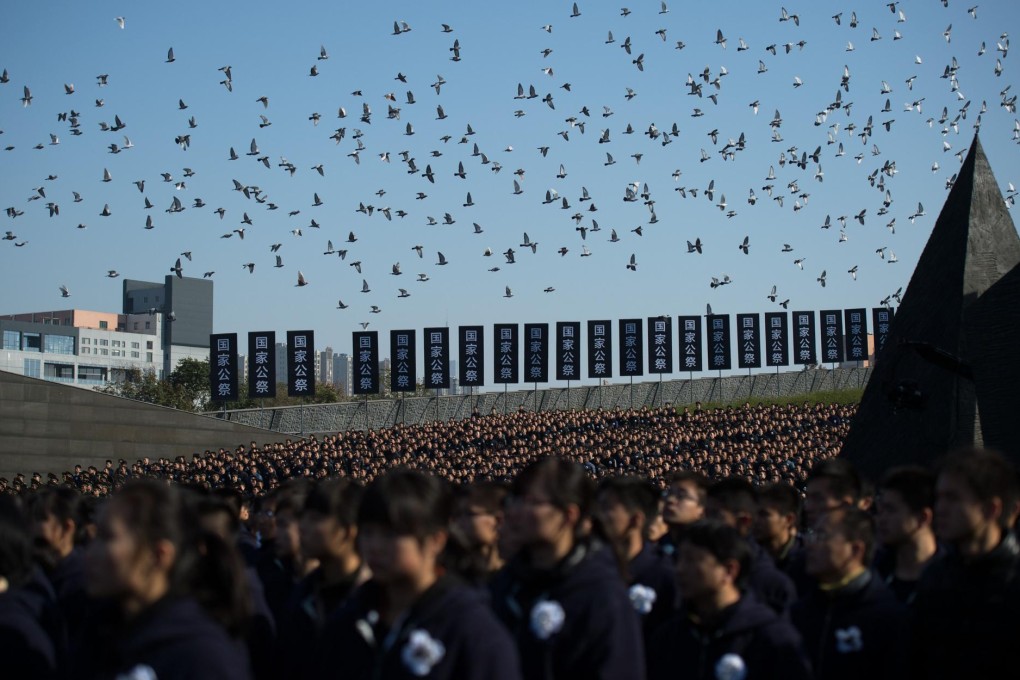Update | Xi Jinping blasts Japan's wartime atrocities at high-profile Nanking massacre memorial
President says Japan's wartime record cannot be forgotten but also calls for peace as nation marks the first massacre memorial day

President Xi Jinping condemned any attempts to revise Japan's record of wartime aggression yesterday in a speech marking the country's first national ceremony commemorating the Nanking massacre more than seven decades ago.
But he stressed the observance was intended to forge peace, not hatred between the two neighbours.
"History will not be altered as time changes, and facts will not disappear because of any chicanery or denials," Xi told an audience made up of local residents, students, veterans and survivors, and foreign guests at the Nanking Memorial Hall in Nanjing , Jiangsu . He added that the days when China could be bullied by foreign countries were long gone.
In Hong Kong, Chief Executive Leung Chun-ying gathered with officials at the Museum of Coastal Defence, while Macau also held an official ceremony.
Watch: China's Xi says Nanjing Massacre undeniable on 77th anniversary
China claims Japanese troops killed more than 300,000 people in the then capital, while a post-war Allied tribunal put the death toll at 142,000. Xi called it a "horrendous crime against humanity and a very dark page in human history".